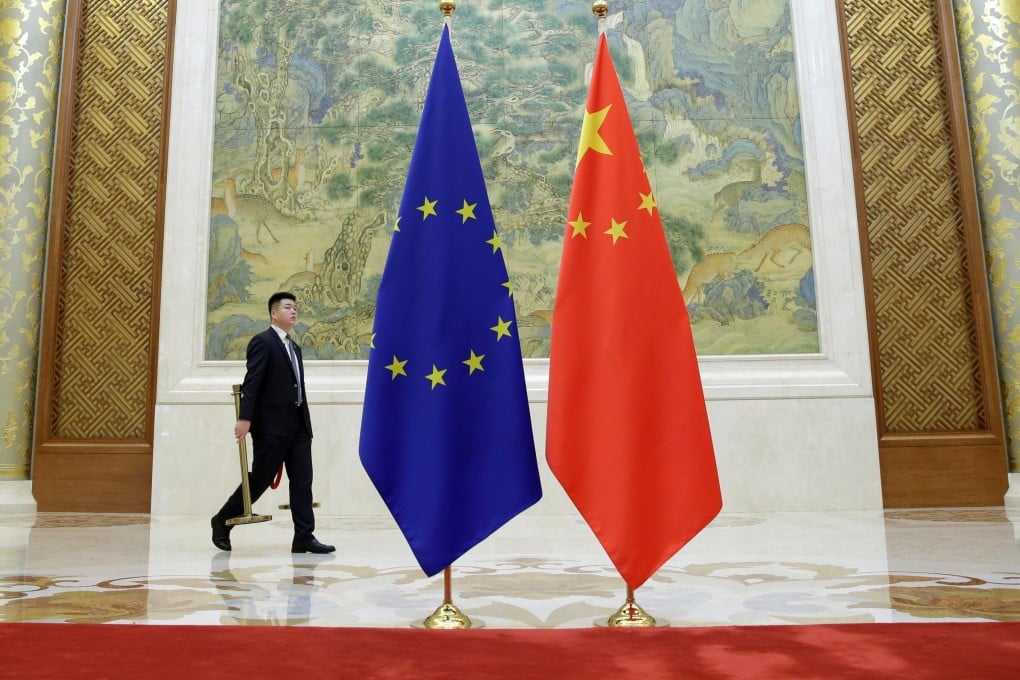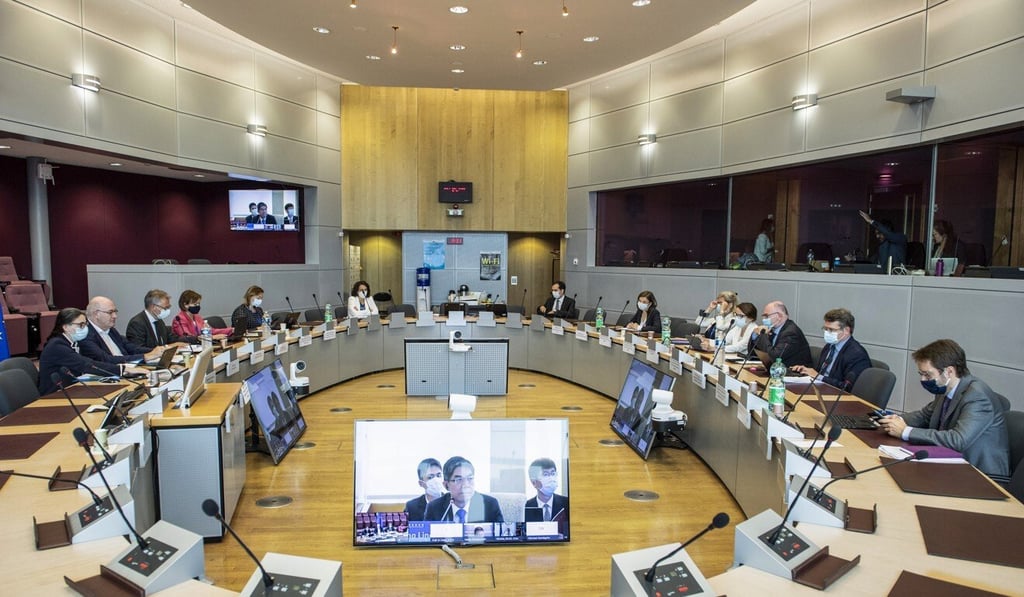China, EU hold ‘candid’ talks on economic and trade ties, including post-pandemic recovery
- While Beijing was upbeat about meeting, Brussels focused on market access and reciprocity – sticking points in their investment deal negotiations
- Separately, Foreign Minister Wang Yi told his French counterpart that China and the EU should be the world’s ‘stabilisers’ and oppose ‘unilateral bullies’

Beijing and Brussels are seeking to strengthen economic and trade ties despite their conflicts, and amid China’s deepening feud with the United States.
China and the European Union had “deep, candid, pragmatic and effective” discussions on post-pandemic economic recovery and cooperation during a meeting held via video link on Tuesday, according to a statement from the Chinese commerce ministry.
Chaired by Chinese Vice-Premier Liu He and European Commission Executive Vice-President Valdis Dombrovskis, the annual economic dialogue was not held last year because Beijing was focused on negotiations for a trade deal with Washington.
This year, the two sides agreed to “increase mutual understanding, to create certainties amid uncertainties and cement market confidence” during the talks, the statement said.

Also on Tuesday, Chinese Foreign Minister Wang Yi told his French counterpart Jean-Yves Le Drian in a separate phone call that China and the EU should be the world’s “stabilisers” and oppose “unilateral bullies”.